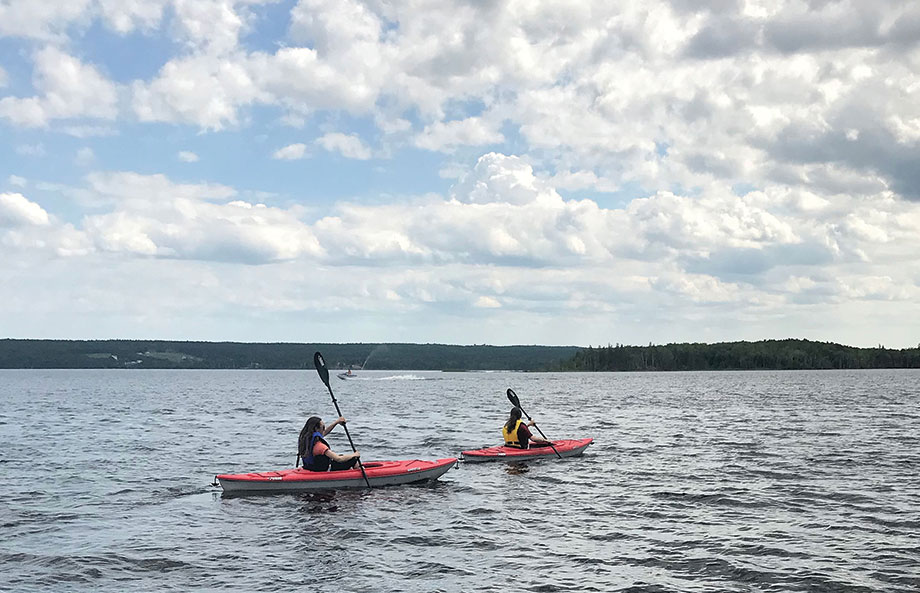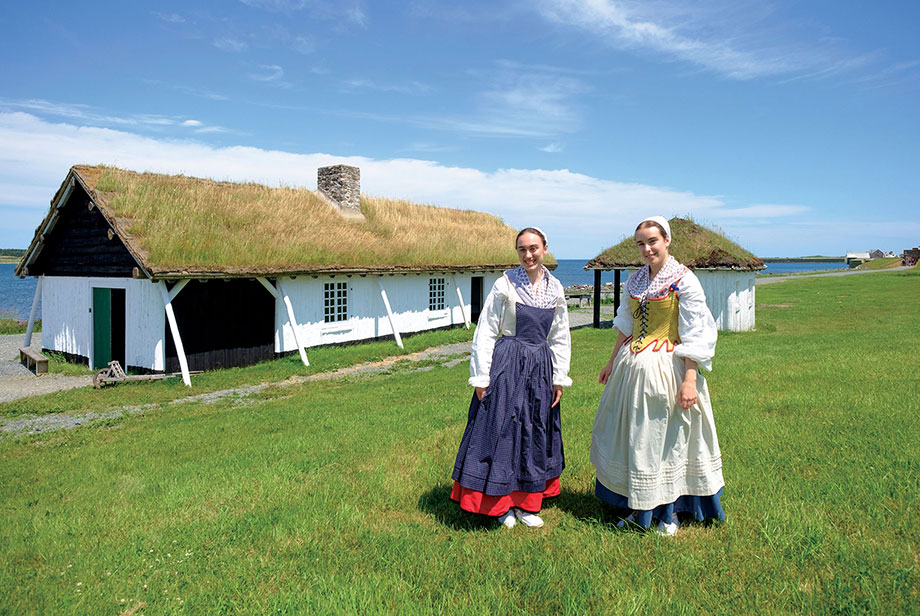HOW WE ORGANIZE OUR WEEKS
CLASSES AT CBU
Mirari and me spend Mondays and Tuesdays in the classes at the university. On Monday, as always, Erna picked us up, she is very nice. Erna MacLeod is one of our professors at the university, and she makes sure we are liking the course and if we are finding it interest, which of course we do. The lessons are very interesting. On Mondays we have the theoretical lesson at the university.
COMPLEMENTARY FIELDTRIPS
On Tuesday we visited the Highland Village. The reason for it was that on the day before, we covered the topic of the Gaelic culture in class. It was a very interesting visit. We also debated whether on the museums is everything told. What I mean with it is whether the whole History is being told, such as the relation with Mi’kmaq people in Unama’ki (Cape Breton Island).

Kayaking in the lake. Photo © Christiane Carrier.
HOLIDAY
Wednesdays is our holiday, in which we spend time organizing our notes about what we are learning and comparing them with Marta and the work she is doing. It is also when Christiane and Eddie invite us over to their place and when we get to know the surroundings.
DAYS AT THE FORTRESS
The rest of the week, Thursday to Sunday, we spend it at the Fortress of Louisbourg. We are there 5 hours each day, in which we demonstrate and teach, depending of the day, different aspects of the Basque culture.

Mirari and Amets in front of their house outside the Fortress. The DesRoches House, home of Basque fishermen. Photo © Parks Canada. Fortress of Louisbourg.
MARTA
Because Marta has a specific research project concerning the Residential Schools, she is at the university of different days. She usually spends her time at the UNAMA'KI COLLEGE. She sometimes comes with us to our fieldtrips. The Residential Schools were schools cerated in the 19th century and remained in place until the end of the 20th century. The main objective of these schools was to assimilate the Indigenous children into English and French culture; they had absolutely prohibited to speak in their native language and to perform activities related to their communities.
